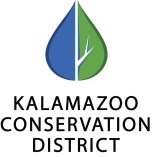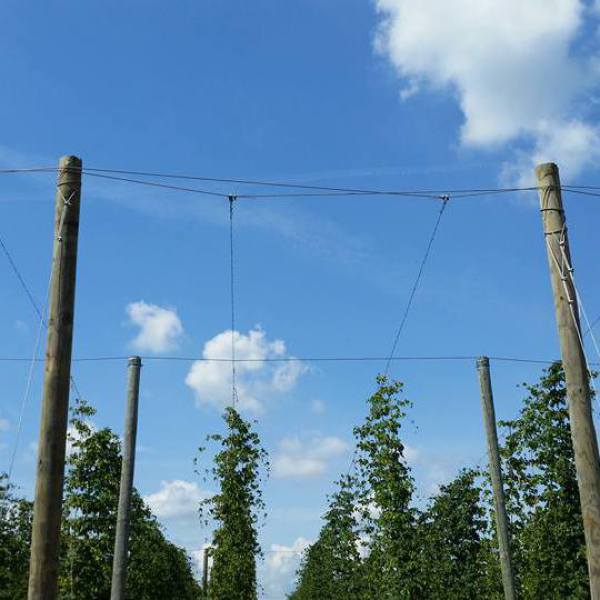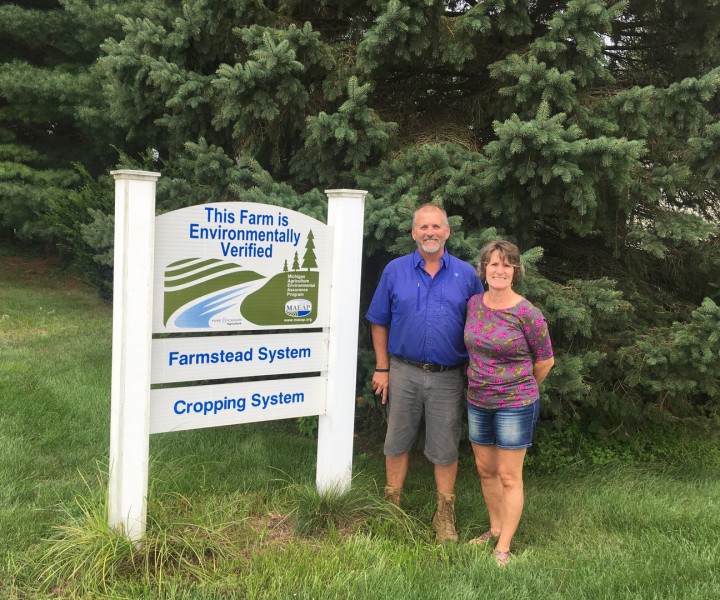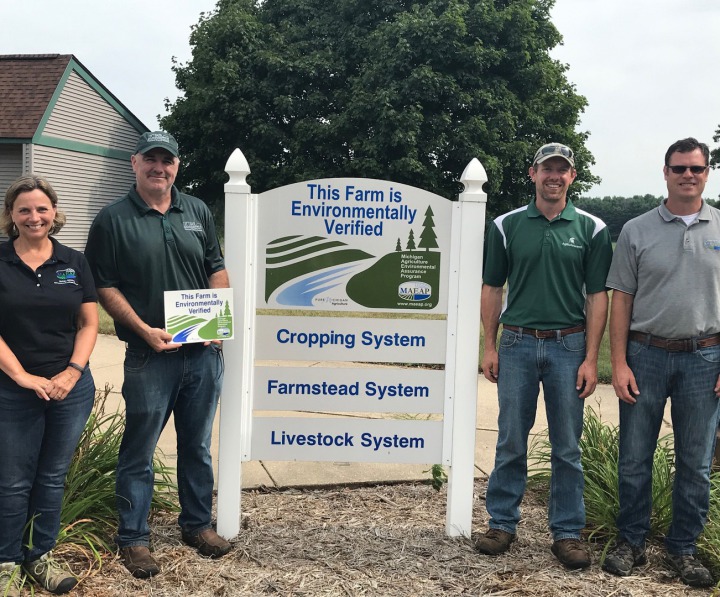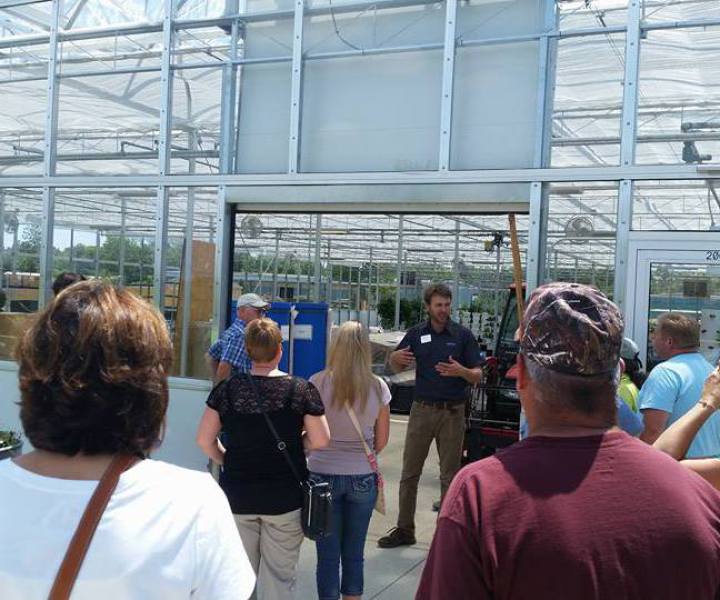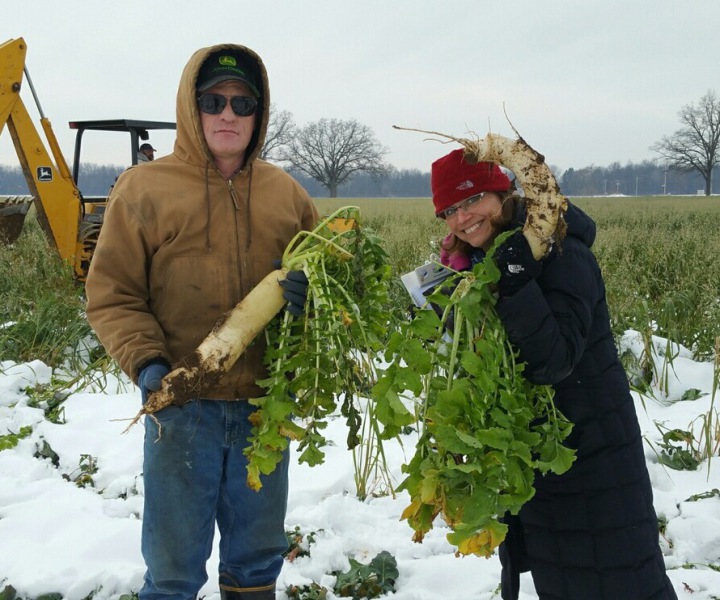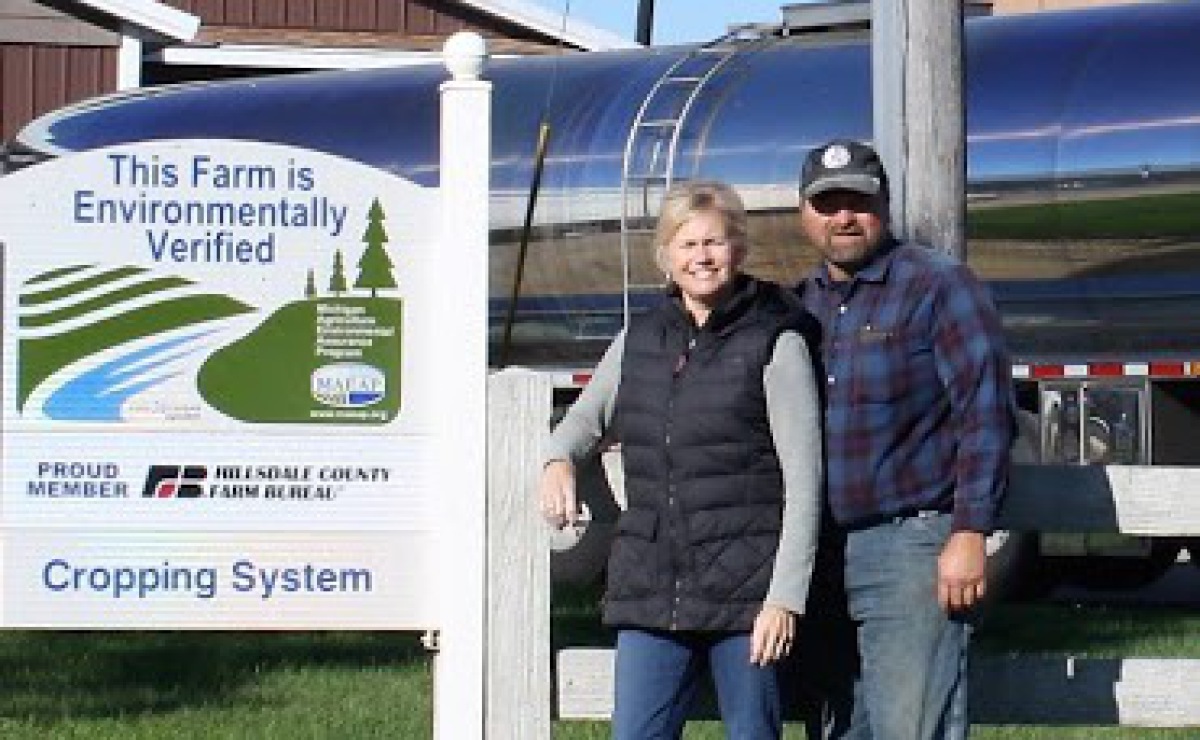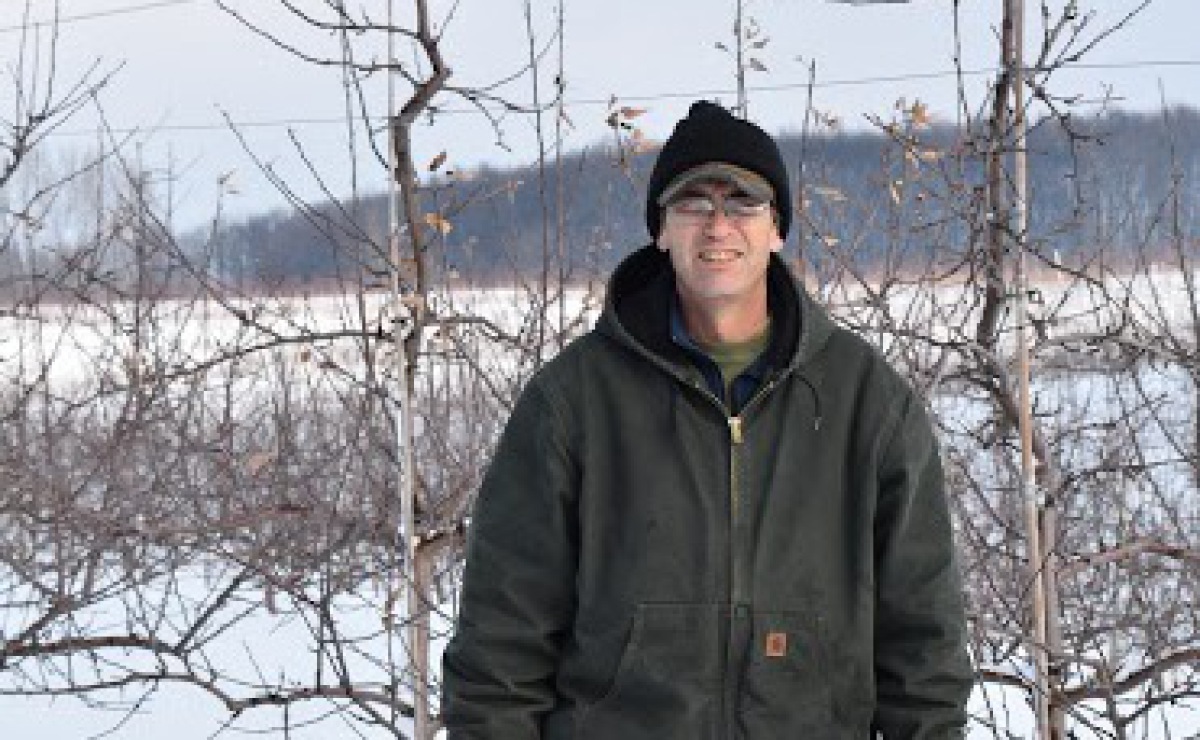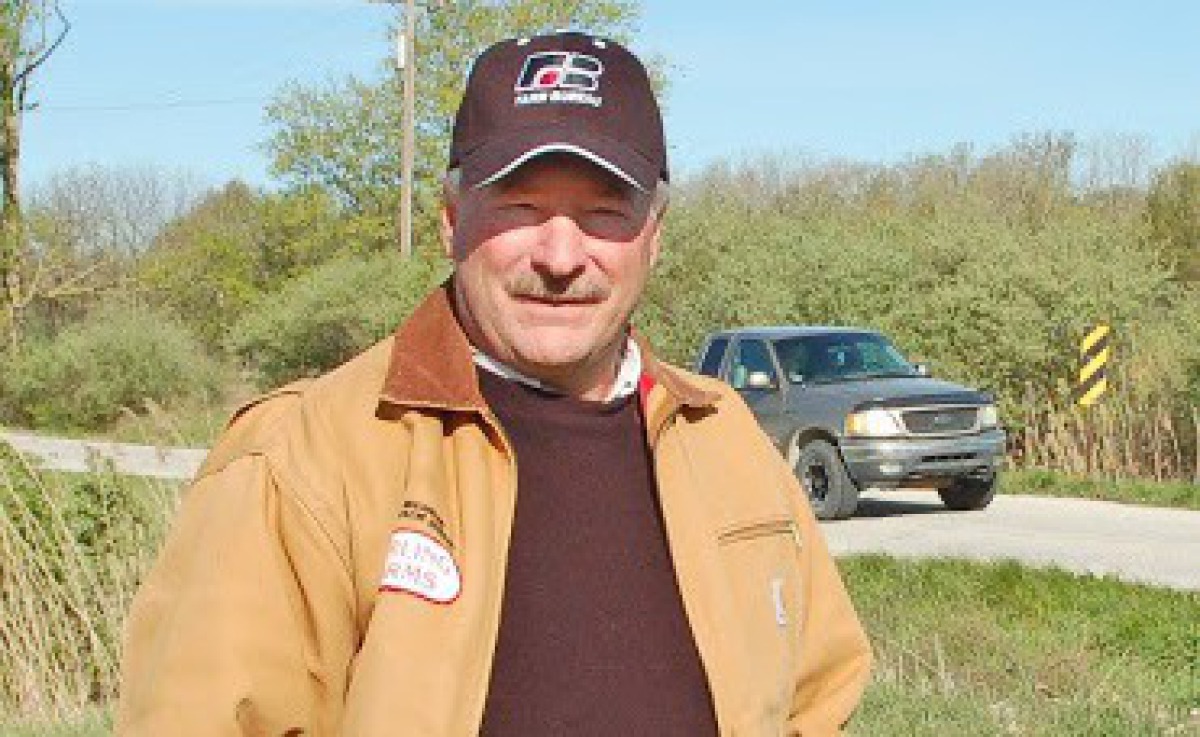Water pollution comes from many sources, and some of it comes from farms. That's why Kalamazoo Conservation District is available to help you enroll in the Michigan Agriculture Environmental Assurance Program (MAEAP). This program offers assistance and recognition to farms of all sizes that reduce erosion and runoff from private land into public waters.
This program is free and voluntary. Everything we learn about your farm is 100% confidential- this is guaranteed by state law.
Farmers who earn MAEAP recognition receive a sign to display on their farm to show that they are a top steward in the community. As a verified farm, you may also benefit from regulatory protections and be at an advantage for additional expert help and cost share funds on the farm. Above all, you will earn an enduring sense of pride and accomplishment for your work.
MAEAP verification helps farmers comply with state and federal laws and is open to any Michigan farmer. There are four categories of
recognition: 1) Cropping, 2) Livestock, 3) Farmstead, and 4) Forest, Wetlands, and Habitat.
Farms are reverified every 5 years remain compliant with the MAEAP program.
The program includes four steps
Farm visit & Recommendations
Invite a MAEAP technician to tour your farm. The technician will explain the program and recommend practical steps you can take to reduce erosion and runoff into public waters.
Everything the technician learns about your farm will remain confidential and will not be shared with your competition or environmental regulators!
Recognition
Once the work is complete, you can contact the Michigan Department of Agriculture and Rural Development. A verifier from MDARD will visit your farm to ensure the recommended practices are in place and address erosion and runoff risks on your land. When the work is done, we will give you a sign to place on your farm and send you a certificate signed by the Director of the Michigan Department of Agriculture and Rural Development.
What MAEAP-Recognized Farmers Say
Bruce & Jennifer Lewis
Pleasant View Dairy
“We believe electively opting to participate in MAEAP... will help farmers keep up with the rapid pace of environmental and sustainability-based industry changes... The fourth generation is now learning and preparing for their future as we all try to leave our farmstead better than we found it.”


